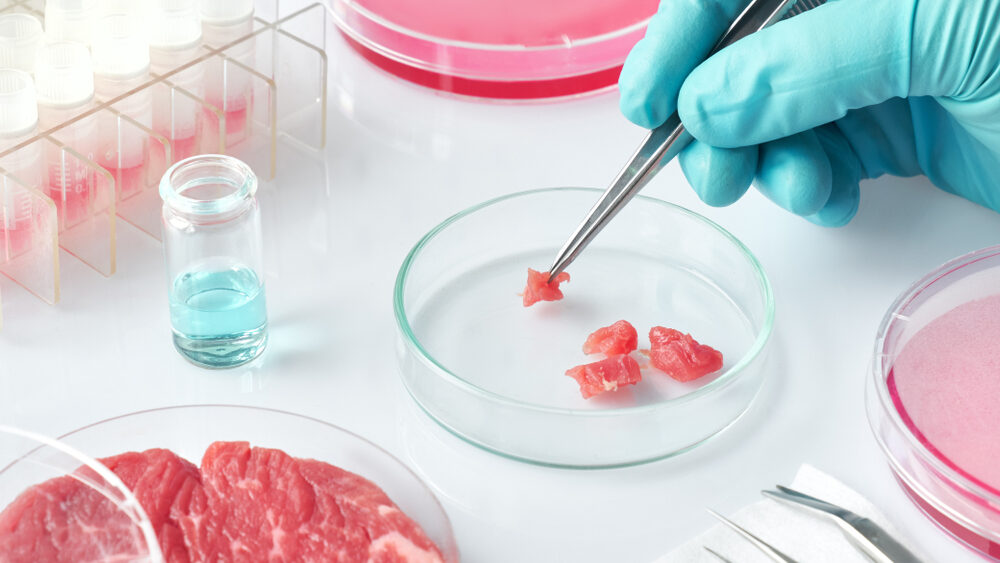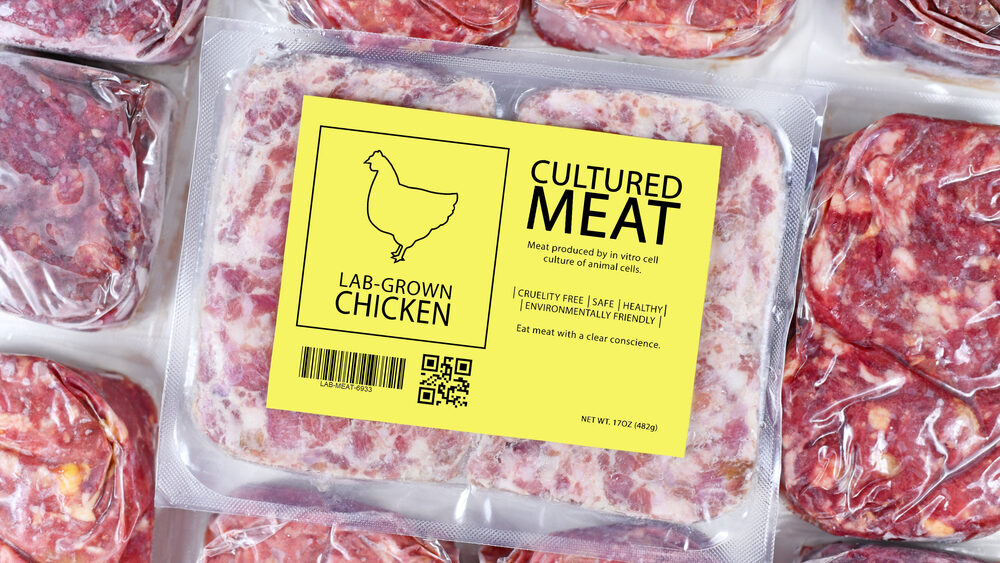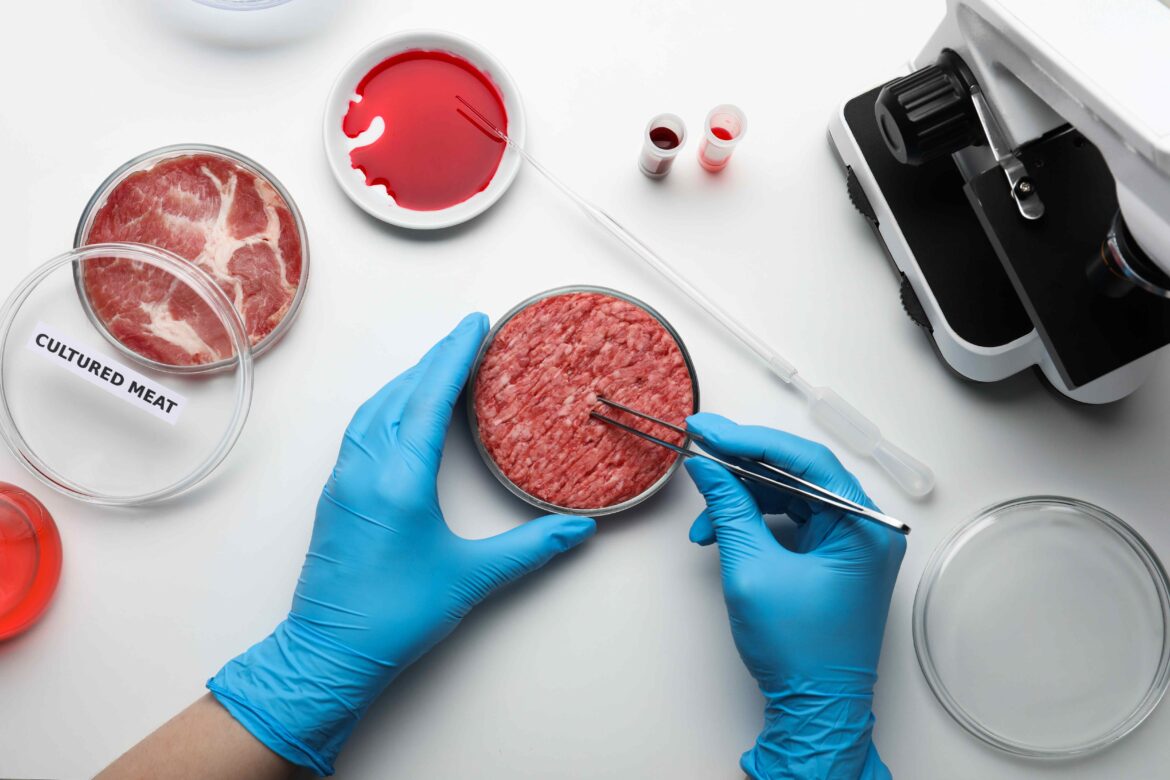In recent years, lab-grown meat has emerged as one of the most talked-about innovations in the food industry. Also known as cultured meat or cell-based meat, lab-grown meat is produced by cultivating animal cells in a lab, without the need to raise and slaughter animals. This breakthrough technology is seen as a potential solution to many of the issues surrounding traditional meat production, such as animal welfare concerns, environmental impact, and food security. However, despite its promising benefits, lab-grown meat has also sparked significant controversy, with various ethical, regulatory, and health concerns being raised. In this blog, we’ll explore the latest approvals and controversies surrounding lab-grown meat, the challenges it faces, and what the future might hold for this innovative food source.
What is Lab-Grown Meat?
Lab-grown meat is made using a process known as cellular agriculture. In this method, animal cells are harvested from a live animal (often a small biopsy), and then cultured in a nutrient-rich environment that encourages the cells to grow into muscle tissue, mimicking the texture and taste of traditional meat. The result is a product that is biologically identical to meat but does not require animal slaughter, making it a potentially more sustainable and ethical alternative to conventional meat.
The technology behind lab-grown meat has advanced rapidly in recent years, and several companies are already producing small quantities of lab-grown meat for commercial use. As this technology continues to evolve, it is expected to play a major role in feeding the growing global population while reducing the environmental impact of traditional farming.

Latest Approvals in Lab-Grown Meat
The approval of lab-grown meat by regulatory authorities is a major milestone in the development of this industry. In 2020, Singapore became the first country to allow the sale of lab-grown meat. The Singapore Food Agency (SFA) gave the green light for cultured chicken nuggets made by Eat Just, a company from California. This approval marked a significant breakthrough for lab-grown meat, allowing the public to purchase and consume lab-grown meat products for the first time.
Following Singapore’s lead, the United States Food and Drug Administration (FDA) and the U.S. Department of Agriculture (USDA) have also been working on creating regulations for lab-grown meat. In 2021, the FDA gave its “no questions” response to the production of lab-grown chicken, signaling that it was on the path to approval. The USDA has also issued guidance on how cultured meat will be inspected and labeled, paving the way for its potential approval for mass production and sale in the U.S.
More recently, in late 2023, the first-ever lab-grown beef product was approved for sale in the U.S. by the FDA, a significant step forward in the commercialization of lab-grown meat. The product, produced by Upside Foods, a leading cultured meat company, is expected to be sold in select restaurants and high-end food outlets in the coming months.
These approvals are encouraging for the industry, as they provide a legal framework for the commercialization of lab-grown meat and open the door for other countries to follow suit. As more approvals are expected in the coming years, the global market for lab-grown meat is anticipated to expand rapidly.
Controversies Surrounding Lab-Grown Meat
Despite its potential benefits, lab-grown meat has not been without controversy. While some view it as a revolutionary solution to the challenges of traditional meat production, others have raised several concerns that continue to spark debate. Below are some of the major controversies surrounding lab-grown meat.
1. Ethical Concerns
One of the primary selling points of lab-grown meat is that it does not involve the slaughter of animals. However, ethical concerns still arise, particularly regarding the process of harvesting animal cells. Critics argue that the practice of taking cells from live animals, even if the animals are not harmed, still raises ethical issues. Furthermore, some animal rights advocates claim that lab-grown meat may not go far enough in addressing the fundamental problem of animal exploitation in the food industry.
In response, supporters of lab-grown meat emphasize that the process is far less invasive and harmful than traditional meat production. However, the ethical debate is likely to continue as the technology evolves.
2. Health and Safety Concerns
Health and safety concerns are another area of controversy surrounding lab-grown meat. While cultured meat is biologically identical to traditional meat, the long-term health effects of consuming lab-grown meat are still unknown. Critics argue that the unfamiliarity of the production process and the potential for the growth of harmful bacteria in the lab could pose risks to human health.
Regulatory authorities, such as the FDA, are actively working to ensure that lab-grown meat products meet the same safety standards as conventional meat. The approval processes for lab-grown meat include rigorous testing and inspections to ensure that these products are safe for consumption. However, as with any new food technology, public skepticism remains, and it will likely take time for consumers to fully trust lab-grown meat products.
3. Environmental Impact
One of the most widely touted benefits of lab-grown meat is its potential to reduce the environmental impact of meat production. Traditional livestock farming is a major contributor to greenhouse gas emissions, deforestation, and water consumption. Lab-grown meat, in theory, could offer a more sustainable alternative, as it requires fewer resources and produces fewer emissions.
However, some critics argue that the production of lab-grown meat may not be as environmentally friendly as claimed. The energy-intensive process of cultivating meat in labs could still lead to significant carbon emissions, depending on the energy sources used. Additionally, scaling up production to meet global demand could strain existing infrastructure and increase the environmental footprint of the industry.
4. Economic and Social Implications
The widespread adoption of lab-grown meat could have significant economic and social implications. Traditional meat industries, including farmers and ranchers, may face financial challenges as lab-grown meat becomes more commercially viable. The shift toward cultured meat could disrupt the agricultural sector, leading to job losses and changes in the global food supply chain.
Moreover, the cost of producing lab-grown meat is still high, and it remains to be seen whether this technology can become affordable enough for widespread consumption. As the industry matures and production processes become more efficient, the cost of lab-grown meat is expected to decrease. However, it may take several years before lab-grown meat becomes a mainstream product accessible to the average consumer.
The Future of Lab-Grown Meat
As the approvals and controversies surrounding lab-grown meat continue to evolve, it’s clear that this technology has the potential to reshape the global food industry. With increasing support from regulatory bodies and growing interest from consumers, lab-grown meat could become a significant part of the global food supply in the coming years. However, addressing the ethical, health, and environmental concerns will be crucial for ensuring the success of this innovation.
As the industry develops, it is likely that we will see more lab-grown meat products entering the market, including cultured pork, beef, and even seafood. If the production costs continue to decrease and regulatory hurdles are overcome, lab-grown meat could become a viable solution to the challenges posed by traditional meat production.

Conclusion
Lab-grown meat represents a revolutionary step in the future of food. While it holds the promise of being a more sustainable, ethical, and innovative solution to the problems of traditional meat production, it is not without its controversies. As we move forward, it will be essential to address the ethical, health, environmental, and economic challenges associated with this technology. With more approvals expected in the coming years, lab-grown meat could play a significant role in feeding the world’s growing population while reducing the environmental burden of conventional meat production.


